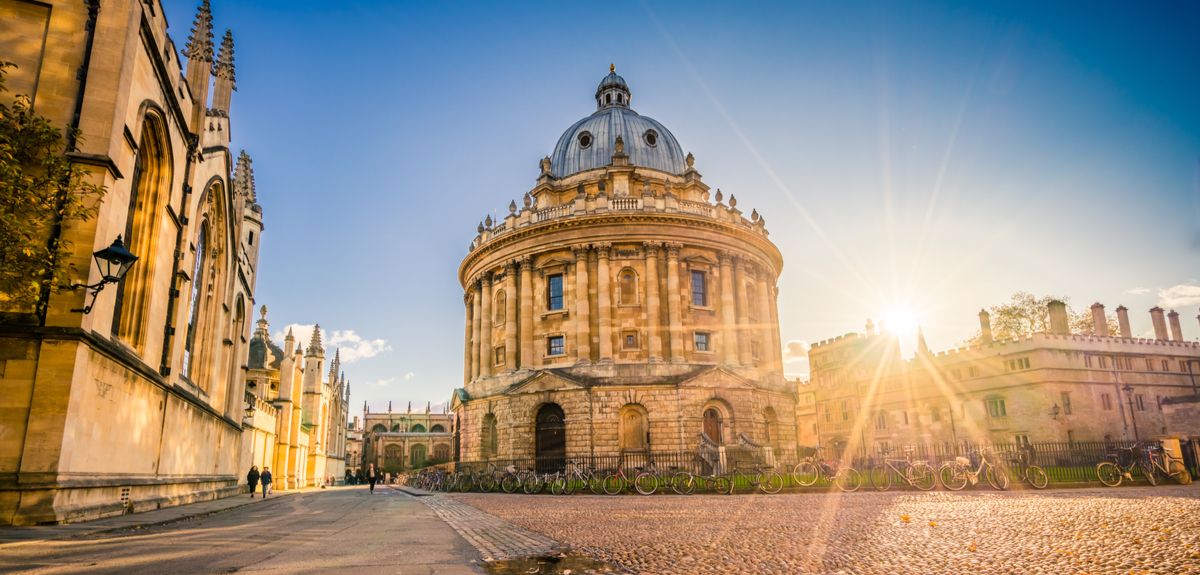
Image credit: Shutterstock
British Academy honours seven Oxford academics
Seven Oxford academics have been elected as Fellows of the British Academy today, in recognition of their achievements in the humanities and social sciences.
This year’s Fellows are notable for their academic versatility, with many having made significant contributions to a range of disciplines.
Oxford’s new Fellows of the British Academy are:
Andrew Kahn, Professor of Russian Literature, is among the world’s leading scholars of Russian literature. He has written on medieval authorship, on twentieth-century poetry, and on much that lies between. The main focus of his research has been poetry, but his studies of poetry extend into, and are informed by, work on intellectual history.
Andrew Kahn said of his fellowship, ‘Great poets are prisms, refracting the ideas and concerns of their world. I am delighted by recognition of my work to understand how the art of these staggering intelligences expresses their engagement with and experience of the world. This news is a true honour, of course, but also humbling, reminding me that many of the Russian writers I have the privilege to study were never honoured in their lifetimes.’
Laurence Brockliss, Emeritus Professor of Early Modern French History, is a prolific and scrupulous scholar and one of the leading cultural historians of early modern Europe. He engages actively and expertly with a number of different disciplines: intellectual history, history of medicine, history of science, history of education, history of childhood, and social history more generally.
Helen Margetts OBE, Professor of Society and the Internet, Professorial Fellow of Mansfield College and Director of the Public Policy Programme at The Alan Turing Institute for Data Science and Artificial Intelligence, is a political scientist specialising in the relationship between government, politics and digital technology. Her multi-disciplinary and methodologically innovative research, drawing on disciplines from across the social sciences, humanities and physical and life sciences, tackles long-standing questions of political behaviour, public policy and governance in the age of the internet, social media and data-intensive technologies.
Commenting on her fellowship, Helen Margetts said, ‘What a wonderful opportunity to become a Fellow of the British Academy amongst scholars not only renowned in their respective fields but also whose research spans across disciplines and bridges divides. I am proud to receive this prestigious fellowship in recognition of multidisciplinary work that operates at the interface of political science and other disciplines from philosophy to the physical and life sciences. And I look forward to joining this new cohort in pushing the boundaries of how the social sciences and humanities can meet the great challenges of our time.'
Louise Gullifer, Professor of Commercial Law, is one of the leading academic commercial lawyers in the UK, best known for her work on personal property security law and its reform. While maintaining the highest standards of academic rigour, she has immersed herself in the practical working of the law, in particular in financial markets. Among the many reasons for Louise’s election to the Academy’s Fellowship, is the fact that no one outside practice of the law has her understanding of the ways that financial markets work, how they are regulated and how they react to that regulation.
Margaret Meyer, Official Fellow in Economics, has been a prominent pioneer in using games of incomplete information to treat issues in industrial organization and managerial economics, especially in dynamic settings. She has made significant contributions to the economic analysis of oligopoly, imperfect competition, business ownership, employee incentives, and managerial career concerns.
Geoffrey Evans, Professor of the Sociology of Politics, has made many major contributions to the study of voting behaviour and political life in the UK and elsewhere. He approaches this from a background in sociology and psychology, employing sophisticated quantitative methodologies to advance understanding and, on occasion, tackle conventional wisdom.
Clare Harris is Professor of Visual Anthropology at the School of Anthropology and Museum Ethnography, Curator for Asian Collections at the Pitt Rivers Museum and a Fellow of Magdalen College. Her pioneering research focuses on Tibetan visual and material culture in India, the Tibetan-speaking regions of the People’s Republic of China, and across the globally dispersed Tibetan diaspora. She has created a wide range of innovative projects inspired by theories and methods derived from anthropology, art history, post-colonial studies and critical museology.
Clare Harris said, ‘I am utterly delighted and honoured to have been elected to the Fellowship of the British Academy. As someone who first benefitted from British Academy funding as a graduate student, I greatly appreciate the Academy’s capacity to support innovative research across the Humanities and Social Sciences and I look forward to contributing to that process as a Fellow serving on its committees.’
The new Fellows of the British Academy join a community of over 1400 of the leading minds that make up the UK’s national academy for the humanities and social sciences.
Additionally, Dr Ben Goldacre of the Nuffield Department of Primary Care Health Sciences was awarded the President’s Medal for his role in championing evidence and reason through his writing, broadcasting and campaigning. Professor Sir David Cannadine President of the British Academy, commented:'At a time of fake news and the distrust of experts and expertise, there can surely be no better time to acclaim and applaud those who are standing up for truth and evidence.'
 British children are growing taller but not for the right reasons
British children are growing taller but not for the right reasons
 Expert Comment: The war in the Gulf
Expert Comment: The war in the Gulf
 International Advisory Board to strengthen global leadership in primary care
International Advisory Board to strengthen global leadership in primary care
 Expert Comment: Church-to-mosque conversions grab headlines, but is funding the real crisis?
Expert Comment: Church-to-mosque conversions grab headlines, but is funding the real crisis?